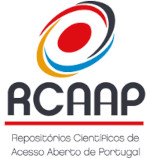<b>Estudos pontuais sobre o conceito de método e teoria no paradigma da complexidade de Edgar Morin</b>
Palavras-chave:
Método, Teoria, complexidade, Edgar MorinResumo
Este artigo é o resultado parcial da investigação acerca do entendimento da noção de método atribuída ao filósofo francês Edgar Morin, principalmente em sua obra O Método1: A natureza da Natureza. Com esse estudo inacabado pretendemos suscitar questões e acolher para o debate contribuições para o fiel entendimento do conceito de método proposto pelo filósofo em inúmeras obras, conferências, artigos e, naturalmente, no conjunto de O Método. Trata-se de perceber a noção de método como um conceito presidido pelo paradigma da complexidade, isto é, como um conceito que se traduz pelas experiências entre o vivido e o refletido, entre o sujeito investigador e o objeto investigado numa proposta de interações recíprocas autoconstituintes entre a descoberta (teoria) e o caminho da descoberta (método) do conhecimento ou, se quisermos, do novo, do inédito, do inusitado. Assim, caminho, caminhar e caminhante constituem-se em uma unidade compreensiva lógica e dialogicamente como metáforas evocativas do sentido que o método é compreendido pela complexidade e para o qual concorre, igualmente, a compreensão do conceito de teoria.Downloads
Não há dados estatísticos.
Downloads
Como Citar
de Arrial, L. R., & Calloni, H. (2010). <b>Estudos pontuais sobre o conceito de método e teoria no paradigma da complexidade de Edgar Morin</b>. Revista Didática Sistêmica, 11, 50–63. Recuperado de https://periodicos.furg.br/redsis/article/view/1661
Edição
Seção
Artigos de Fluxo Contínuo






